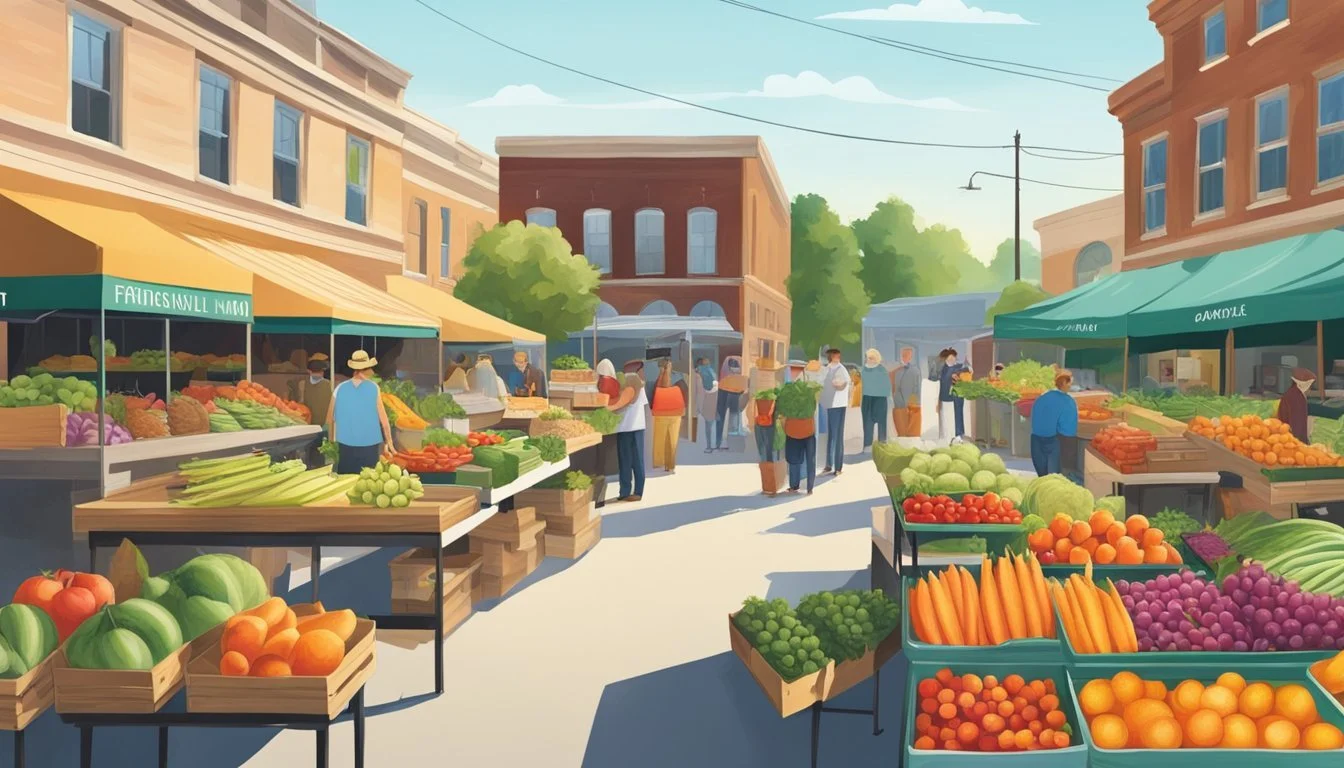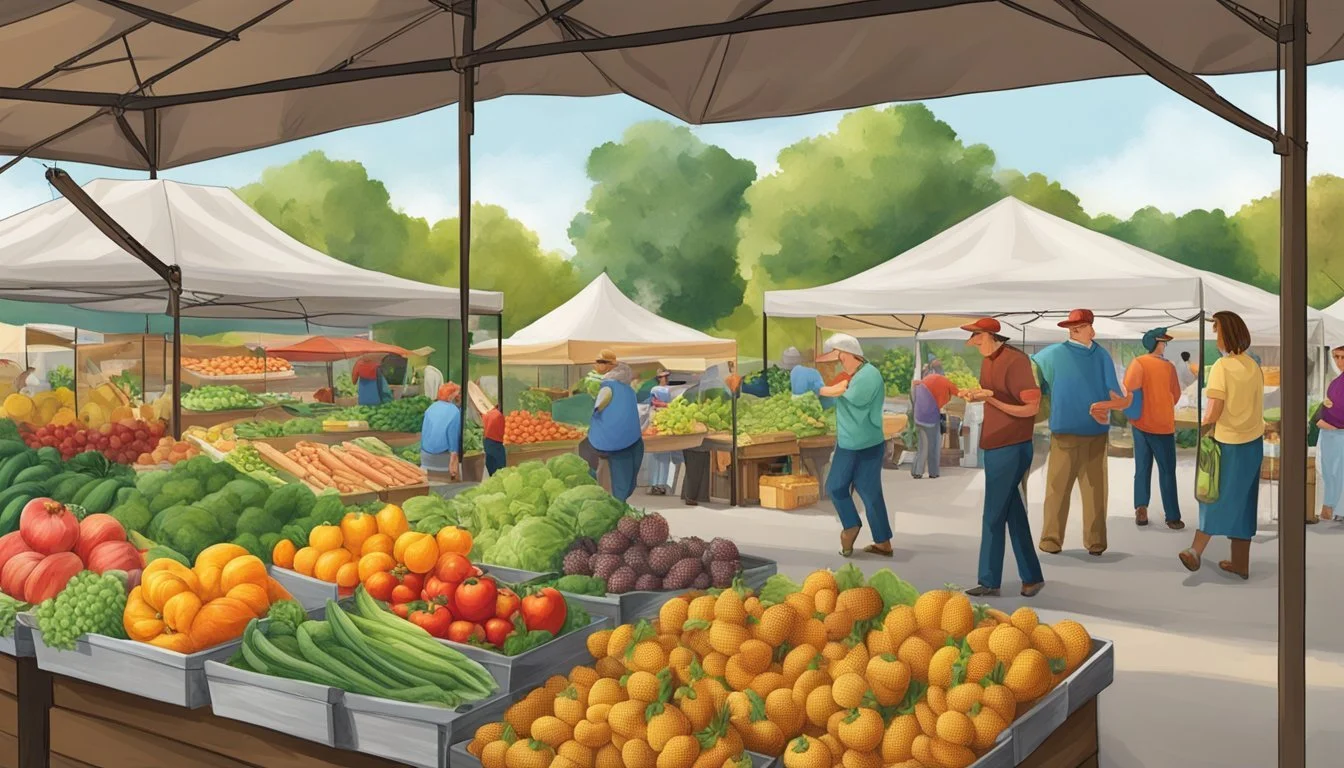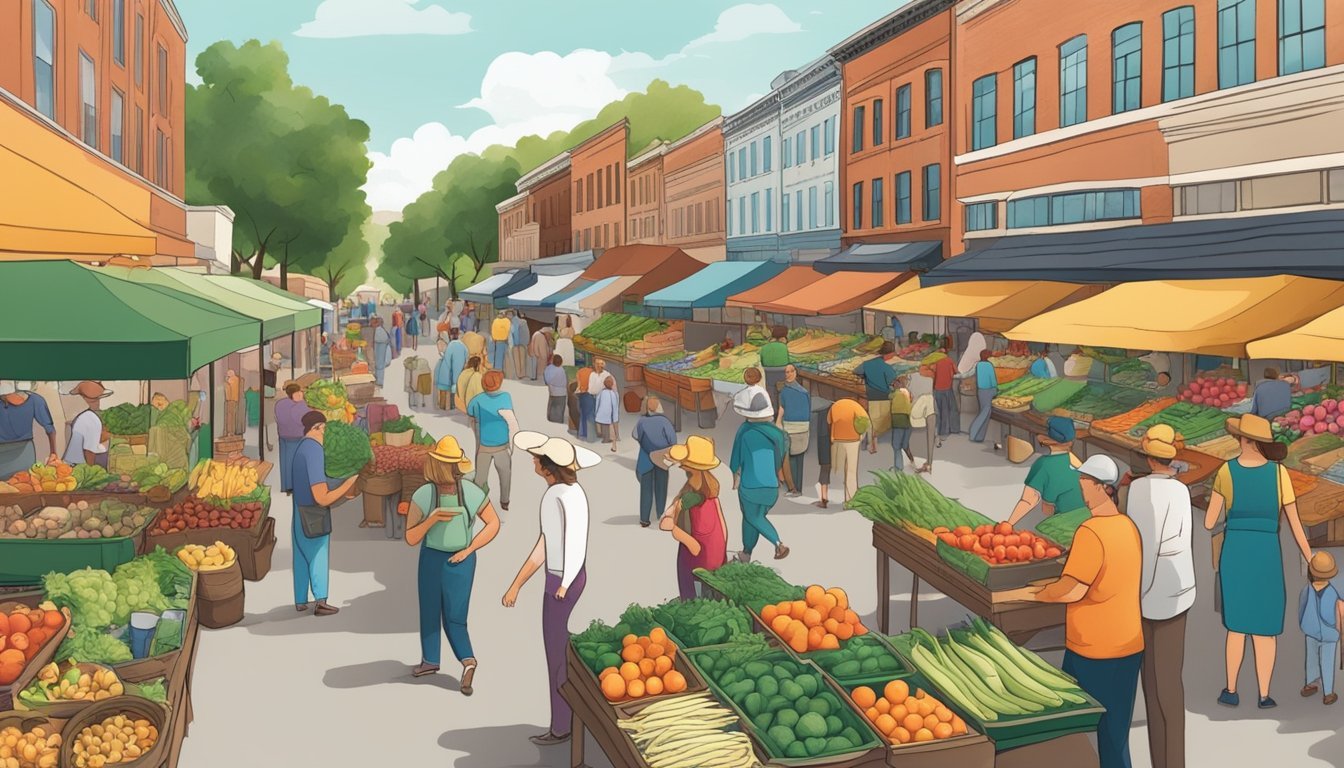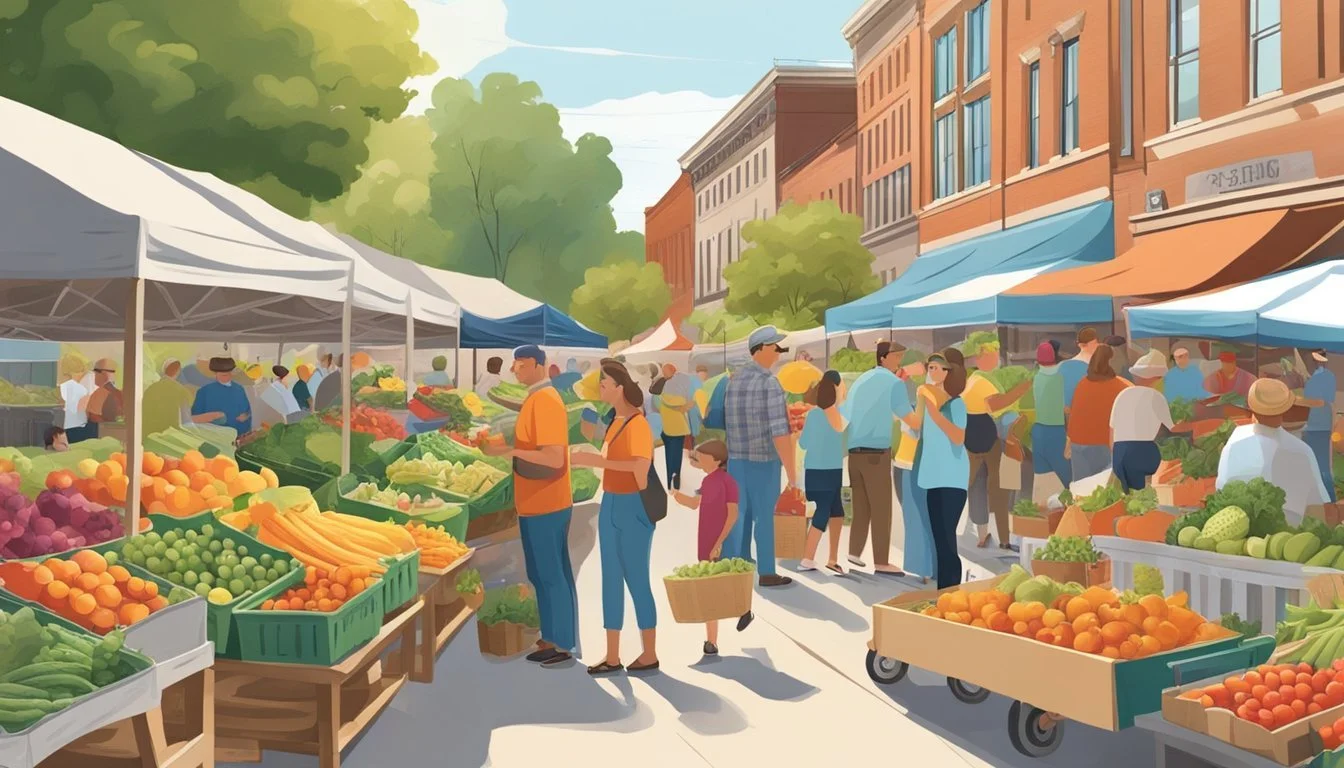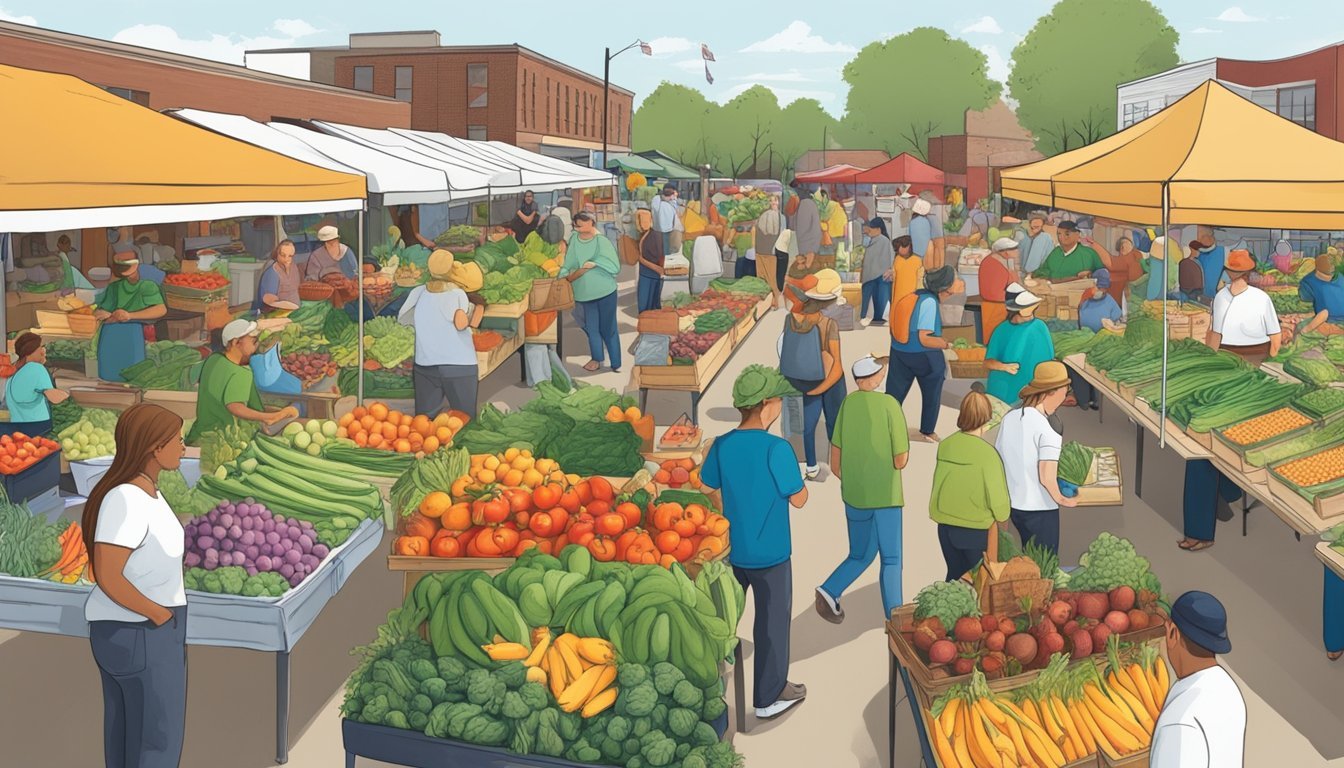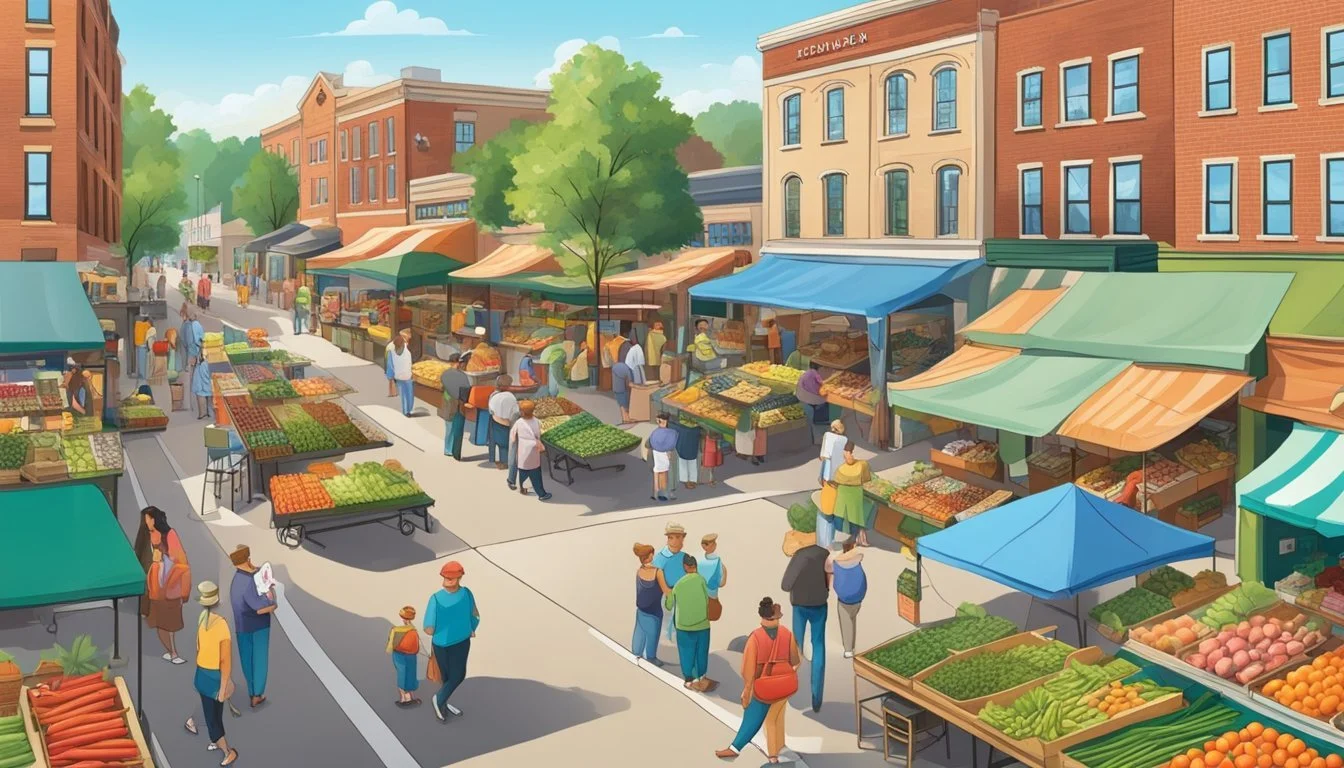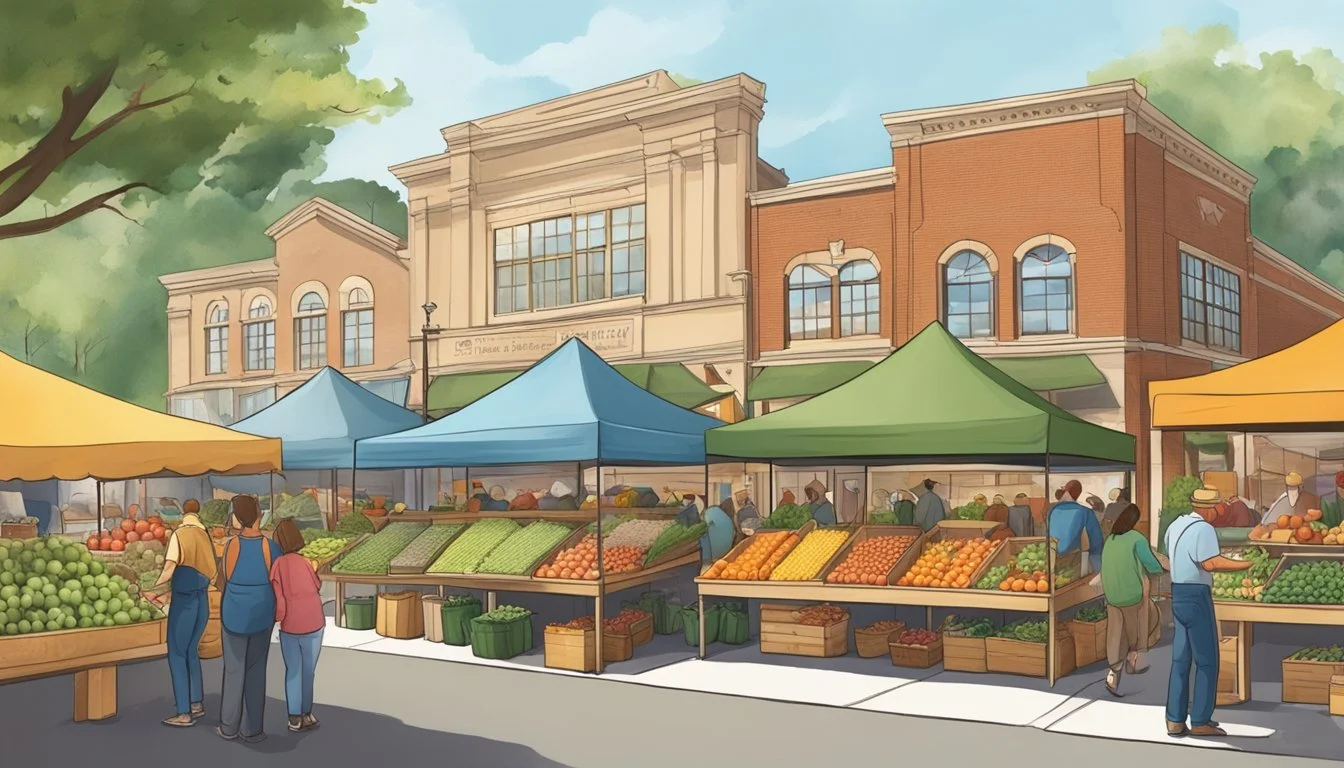Community Supported Agriculture (CSA) in Springfield, MO
A Guide to Local Produce and Farms
Community Supported Agriculture, commonly known as CSA, is an arrangement that connects local farmers with consumers to foster a mutually beneficial ecosystem. In Springfield, Missouri, CSAs have taken root, bolstering the local food movement by providing residents with direct access to fresh, seasonal produce from their community farmers. Through these programs, consumers purchase 'shares' from local farms, which are typically comprised of weekly deliveries of vegetables; however, some CSAs may include a variety of other farm products such as fruits, flowers, eggs, and meat.
Springfield's engagement in CSA programs underscores an increasing commitment to sustainable agriculture, drawing attention to the importance of locally grown produce. By supporting CSAs, Springfield residents are actively participating in a system that champions environmental stewardship, economic viability, and social responsibility. Notable within the area is Revita Gardens offering half-bushel boxes of produce throughout different seasons, as well as Millsap Farm, distinguished by its year-round production and emphasis on organic practices.
CSA in Springfield fosters a transparent link between producers and consumers, allowing the latter to witness firsthand the implications of their food choices. This not only ensures that consumers receive nutrient-dense and chemical-free produce but also reinforces the local economy by keeping funds within the community. Engaged members get more than just fresh food; they gain an education in agricultural practices, seasonality, and the challenges local farmers overcome to bring food to the table.
What Is Community Supported Agriculture (CSA)?
Community Supported Agriculture, commonly known as CSA, is a model where consumers invest in local farms and in return, receive a share of the harvest. It is a direct-to-consumer approach that benefits members through regular deliveries of fresh, often organic produce, and supports farmers financially.
Benefits of CSA
Direct access to fresh, local produce: Members enjoy seasonal goods directly from their local farms which often follow organic or sustainable farming practices.
Support of local agriculture: Investment in a CSA helps safeguard local farmland and contributes to the local economy.
Sustainability: CSA models endorse sustainable agriculture by reducing the carbon footprint associated with transporting food over long distances.
How CSA Works
Membership Signup: Customers sign up for a membership or "share" with a local farm, usually at the beginning of the growing season.
Investment in the Farm: This upfront investment provides financial security for farmers, allowing them to plan for the season's production.
Regular Deliveries: Members receive periodic deliveries of fresh produce throughout the farming season, which may include a variety of vegetables, fruits, and other farm products.
Local food directories can often aid in connecting customers to nearby CSA programs. Community Supported Agriculture stands at the intersection of consumer desire for fresh, organic produce and the need for sustainable, local farming solutions.
CSAs in Springfield, MO
Community Supported Agriculture (CSA) programs in Springfield, MO, provide residents with access to fresh, locally grown produce directly from area farms. These programs emphasize sustainability and support for local farmers.
Millsap Farm CSA
Millsap Farm, situated near Springfield, specializes in providing an array of organic vegetables and flowers through its CSA program. They operate using organic practices throughout their greenhouses and outdoor gardens. CSA members regularly receive fresh produce, contributing directly to sustainable local agriculture.
Local CSA Farms
Several local CSA farms around Springfield offer a variety of options for individuals seeking fresh, locally sourced vegetables and herbs:
Revita Gardens: Known for a half bushel box of produce per week available through different seasonal shares.
Springfield Community Gardens: A hub for community-supported agriculture education.
Additional farms in nearby areas, including Hampden and Hampshire counties, extend opportunities for CSA shares.
Local CSA programs encourage a direct connection between residents and the farmers who cultivate their food, promoting a thriving community around local agriculture in Springfield, MO.
Joining a CSA in Springfield
Residents of Springfield have the opportunity to support local agriculture while receiving fresh, seasonal produce by joining a Community Supported Agriculture program. These CSA programs foster a direct partnership between consumers and farmers, promoting local economies and sustainable practices.
Choosing the Right CSA
When selecting a CSA in Springfield, individuals should consider the variety of shares offered and whether the produce selection aligns with their dietary preferences and cooking habits. They should also take into account the location of the farm for convenient pickups, and understand the commitment duration as CSA programs often run on a seasonal basis.
Considerations for Choosing a CSA:
Produce offered: Vegetables, fruits, other farm products?
Pick-up location: Accessibility and convenience
Season length: Spring, summer, fall, all-season?
Share size: Suitable for individual or family needs?
Registration and Membership
The process of joining a CSA starts with registration, typically available on the farm's website or through local food directories. Interested parties should act promptly as spaces can be limited and are often filled on a first-come, first-served basis.
Steps to Register:
Information: Collect details about the CSA's program structure.
Investment: Understand the costs involved for various share options.
Signup: Complete the registration form, often online or via email.
Memberships are a pledge of support to the farm and come with the responsibility of sharing the risks and rewards of the growing season. This commitment underlines the essence of CSA, where community members and farmers invest mutually in sustainable food systems.
CSA Seasonal Planning
Proper seasonal planning in Community Supported Agriculture (CSA) ensures a successful harvest and efficient farm operation in Springfield, MO. Careful crop selection and a structured farm activities schedule allow for the maximization of yield and quality.
Crop Selection
CSA providers meticulously choose their crops based on climate, soil conditions, and member preferences. Key vegetables like tomatoes, peppers, and carrots are staples due to their popularity and versatility. Data from past seasons guide the decision-making process, aiding in the prediction of crop success rates and member satisfaction. Revita Gardens CSA, for instance, uses a half bushel box system to manage and distribute the variety of produce each week during their active seasons.
Spring: Early crops such as spinach and lettuce begin in the greenhouses.
Summer: A focus on heat-loving vegetables like tomatoes and peppers.
Fall: Root vegetables like carrots become the highlight.
Farm Activities Schedule
CSAs must structure their yearly activities by following a detailed schedule. This includes dates for planting, tending, harvesting, and hosting educational workshops for members and volunteers.
Planting: Done in waves to ensure a consistent supply of fresh produce.
Maintenance: Regular weeding, watering, and pest control are essential.
Harvesting: Timed perfectly to capture peak ripeness and flavor.
Workshops: Aimed at educating members on sustainable practices and to engage more volunteers.
Millsap Farm is an example of a diversified family farm that incorporates the use of greenhouses to extend the growing season, ensuring a year-round supply of produce and engagement activities for CSA members.
Support for Local CSAs
In Springfield, Missouri, support for local Community Supported Agriculture (CSA) programs embodies a community commitment to sustainable agriculture and directly connects consumers with the source of their food. Local CSAs thrive through active community involvement and dedicated efforts in promoting their benefits to residents.
Community Involvement
Community involvement is vital to the success of CSAs in Springfield. Volunteers play a crucial role in the operational aspects of these programs. They assist with tasks ranging from planting and harvesting to packaging shares for members. Memberships in local CSAs reflect a growing interest in locally sourced and organic practices. Revita Gardens, for example, offers various seasonal CSA shares, giving residents the chance to receive a continuous supply of fresh produce throughout the year.
Engagement Opportunities:
Volunteering at local farms
Participating in education and outreach events
Subscribing to seasonal CSA shares
Promoting Local CSAs
To promote local CSAs, Springfield's community initiatives emphasize the importance of supporting small farms and accessing organic, locally grown produce. The Springfield Community Gardens welcomes individuals to learn about CSA participation, signaling the community's dedication to fostering local agriculture. Additionally, local food directories serve as a valuable source of information, listing multiple CSA farms and networks, which facilitates the connection between consumers and local producers.
Key Promotion Strategies:
Educational events highlighting CSA benefits and subscription details.
Collaboration with community organizations to increase CSA visibility.
Online local food directories.
By engaging residents and providing accessible information on local CSAs, Springfield bolsters a robust network that fiercely champions its local food systems and farming communities.
CSA and Local Economy
Community Supported Agriculture (CSA) is a model that tremendously benefits the local economy of Springfield, MO. In essence, CSA creates a direct pipeline between consumers and local farms, ensuring that the money spent on farm products circulates within the community, thus bolstering local commerce.
Firstly, by committing to CSA shares, consumers are investing in local agriculture. This financial support allows small farms to sustain operations, cover the upfront costs of the season, and focus on quality rather than volume, which is often the case with larger agricultural enterprises.
In a typical CSA model, consumers pre-purchase shares of the harvest, which means that locally-grown produce is sold before it is even planted. This advance funding translates to economic stability for farmers, minimizing the uncertainty that affects crop production and sales.
Secondly, local farms benefit from market assurance. By having a guaranteed customer base through CSA memberships, farmers can plan better, reduce waste, and allocate resources more efficiently.
Economic Impact:
Contribution Detail Local Spending Money spent on CSAs stays within the local economy, promoting growth. Job Creation Successful local farms may lead to more employment opportunities. Sustainability Reduced transportation distances for produce favor sustainability and local business.
Finally, the infusion of capital into local agriculture fosters a resilient economic environment. The community's commitment to buying local through CSAs not only supports the livelihoods of the farmers but also retains the agricultural heritage of the region, strengthening the connection people have to their food and the land it comes from.
Challenges Facing CSAs
Community Supported Agriculture (CSA) models face a myriad of challenges that can affect farmers, market managers, customers, and the sustainability of agriculture. One significant hurdle is the ability to establish a customer base that is both large enough and committed to providing the necessary support. Market managers must engage in effective marketing to attract and retain a diverse group of subscribers.
Customers often face the issue of adapting to the CSA model where the variety of produce is seasonal and less predictable than grocery store offerings. This can lead to dissatisfaction or drop in retention rates if customer expectations are not effectively managed.
For farmers, financial difficulties pose a considerable threat. CSAs require an upfront investment from customers which can alleviate some monetary strain, but unpredictable factors such as poor harvests or economic downturns can compromise the stability of these small-scale operations.
Sustainable agriculture practices, which are often at the heart of CSA philosophy, sometimes clash with consumer demands for a wide variety of produce year-round. Farmers must navigate the delicate balance of maintaining soil health and biodiversity while trying to meet customer expectations.
Lastly, the administrative workload for a CSA can be significant. Market managers and farmers must handle logistics, communication, and subscription management, which are critical but time-consuming tasks.
Entity Challenge Faced Market Managers Must effectively market the CSA to attract and retain customers. Farmers Face financial instability and the need to balance sustainable practices with customer produce demands. Customers Need to adjust expectations regarding the seasonal variety and availability of produce. Sustainable Agriculture Requires farmers to uphold environmental values that may not always align with market demands.
Future of CSA in Springfield
The landscape of community-supported agriculture (CSA) in Springfield, Missouri, is set to build on a tradition of local and sustainable agricultural practices. With an increasing consumer interest in organic vegetables and locally sourced food, Springfield's CSA programs are likely to experience growth and innovation.
Sustainability is a core factor driving the future of CSA. Farmers are anticipated to increasingly adopt eco-friendly methods, ensuring that their production aligns with environmental stewardship. These practices not only appeal to a market seeking greener options but also contribute to the long-term viability of local agriculture.
The trend towards organic produce is set to continue, with more CSAs potentially shifting to or maintaining organic certification. This transition supports health-conscious consumers and meets the demand for organically grown food, which is free from synthetic pesticides and fertilizers.
Community engagement is another pillar for the CSA model's future in Springfield. Enhanced community involvement helps in shaping resilient local food systems and fosters direct relationships between farmers and consumers. This close-knit interaction aids in educating the public about food origins, seasonal eating, and the benefits of supporting local agriculture.
Prospective Developments in Springfield CSAs Expansion of Organic Offerings Emphasis on Environmentally Sustainable Practices Strengthening of Farmer-Consumer Relationships Innovation in Distribution and Marketing Strategies
Springfield's CSA programs may also adapt novel approaches to distribution, like online marketplaces and diversified share options, catering to consumer convenience and preference.
In summary, the future of CSA in Springfield is geared towards embracing organic, sustainable methods while fostering a strong local community around agriculture. The city's local agriculture scene stands to benefit significantly from these forward-thinking initiatives.
Additional Resources
For those interested in Community Supported Agriculture (CSA) in Springfield, Missouri, several resources can provide extensive information and facilitate the registration process.
Local Food Directories:
LocalHarvest is a comprehensive directory for finding CSAs. It lists multiple options, such as Revita Gardens and Millsap Farm, where the latter uses organic practices across several greenhouses and outdoor gardens to provide year-round produce.
Information and Registration:
Revita Gardens CSA: Prospective members can sign up for a variety of seasonal shares, with prices and durations ranging from 8 to 30 weeks. An email inquiry is recommended for more details and registration.
Urban Roots Farm: One can learn about Urban Roots Farm's sustainable vegetable cultivation that takes place year-round on its urban acreage. It adapts its practices according to the season, with specific details available upon direct contact.
Millsap Farm: This family-run farm focuses on sustainability and offers an array of vegetables and flowers. Interested parties should reach out for information regarding shares and registration procedures.
For those aiming to connect with the community and learn more about local agriculture, Springfield Community Gardens organizes events to engage with community-supported agriculture initiatives. Attendance details are typically published in advance for interested parties.
Below is a quick overview for easy reference:
Farm Name Contact Method Notable Practices Revita Gardens Email for more information Seasonal shares available Urban Roots Farm Direct contact Year-round urban farming Millsap Farm Direct contact Sustainable, organic growth Springfield Community Gardens Event publication Community engagement
Potential CSA members are encouraged to contact these entities directly to obtain the most current information and to inquire about the specific offerings and registration details of each program.

